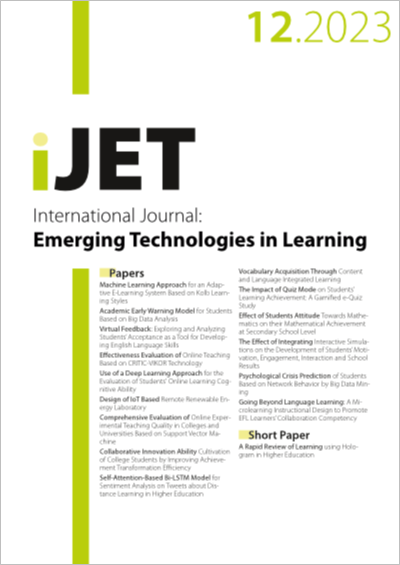Going Beyond Language Learning: A Microlearning Instructional Design to Promote EFL Learners’ Collaboration Competency
DOI:
https://doi.org/10.3991/ijet.v18i12.38443Keywords:
microlearning, EFL, collaboration competency, instructional designAbstract
Microlearning has been predicted as a promising learning trend to cope with the rapidly changing world. The technology-mediated short form of learning also received language partitioners’ and researchers’ interest in adopting microlearning in language education. Notably, most existing studies focused on vocabulary or structural learning instead of presenting micro-contents and micro-activities holistically. This study proposes a structurally streamlined instructional design framework by interconnecting the learning chunks hierarchically from lexical learning to pragmatic application to facilitate holistic language learning in the microlearning context. With the support of collaborative technologies and the team project-based learning approach, this study also aims to develop learners’ collaboration competency in the EFL contexts. Empirical results received from survey indicate that learners’ satisfaction with the novel microlearning instructional design is high. This study also confirms that the proposed instructional design promotes learners’ collaboration competency regardless of learners’ language proficiency.
Downloads
Published
How to Cite
Issue
Section
License
Copyright (c) 2023 Tsui-Ying Lin, Chih-Chien Yang, Bo-Ruei Huang

This work is licensed under a Creative Commons Attribution 4.0 International License.



